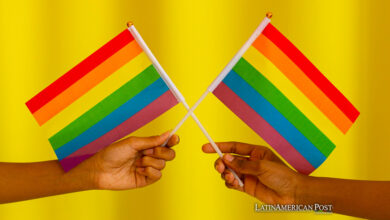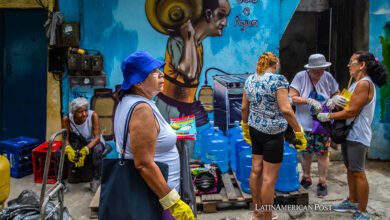France banned “conversion therapies.” What is the panorama in Latin America?
In the 21st century, the fight continues around the world to defend LGBTIQ+ rights and ban “conversion therapies”. In much of Latin America there is still no legislation in this regard.
In the 21st century, the fight continues around the world to defend LGBTIQ+ rights and ban “conversion therapies”. In much of Latin America there is still no legislation in this regard.

Photo: Unsplash
”
LatinAmerican Post | Vanesa López Romero
As absurd as it may seem, the wrong The so-called “conversion therapies” continue to be carried out around the world, violating not only the human rights of those who are exposed to them, but also putting their physical and mental health at risk. Recently, in France, a law was passed that prohibits conversion therapies and puts them in the Penal Code. Failure to comply with this regulation would face a sentence of up to two years in prison and a fine of $34,000. The news was applauded throughout the world, but it also questioned how the situation is in other places, such as Latin America.
What are “conversion therapies”?
The term “conversion therapy” refers to any form used to modify a person’s sexual orientation, gender identity, and/or gender expression. These often have religious or spiritual focuses. Until the last century, sexual and gender diversity was considered a pathology, and conversion therapies emerged to treat this abnormality, since heteronormativity and alignment to the gender assigned at birth were thought of as a biological norm. In this panorama, diversity was considered a deviation and even a mental illness that could be cured through treatment.
Some of the best known around the world are the “gay cure”, the “critical gender therapy”, the “reparative therapy”, the “ex-gay therapy”, among others.
These terms are problematic because the word therapy refers to the treatment of a physical or mental illness, which reinforces the idea that sexual diversity is. For this reason, the American Psychological Association (APA) adopted since 2009 the term “Efforts to Change Sexual Orientation” (ECOSIG) to refer to these processes.
A threat to health and human rights
The forms that ECOSIG can take demonstrate the amount of violence that can be exerted on a person for not complying with standards and regulations regarding their sexuality. Lobotomy, castration, hypnosis, hormone ingestion, electroshock, chemical aversion and masturbatory retraining, and even exorcisms are just a few of the forms ECOSIG have taken throughout history. All violent and even dangerous for the physical health of a person. But above all, the psychological consequences are the ones that most affect well-being.
Even sexual abuse enters here, in the form of compulsory nudity and “contact therapy”, that is, carnal rape.
You may also be interested in: 3 facts you should know about euthanasia in Colombia
Although the methods have changed in recent years and now counseling and religious accompaniment are chosen, human rights violations continue to occur behind the scenes, especially in small communities.
Is diversity not protected in Latin America?
Thinking about ECOSIG today sounds absurd. But unfortunately human rights continue to be run over by this type of practice. In the report “Putting limits on deception”, from the International Gay and Lesbian Association (ILGA World), an account is made of the legal processes that exist around the ECOSIG. At this time, legal restrictions on Sexual Orientation Change Efforts at the national and sub-national levels are only present in Canada, Spain, the United States (all sub-nationals), Malta, Brazil, Ecuador and, more recently, France (all sub-nationals).
In that order of ideas, Latin America has two of the four countries where there are legal restrictions. Argentina and Uruguay, for their part, have non-explicit or indirect prohibitions. That is to say that ECOSIG are not seen as a crime before the Penal Code as such, but rather it is sought to avoid them from other laws. Here, health services have been regulated so as not to determine a person’s mental health diagnosis based on their sexual orientation, gender identity and/or expression.
On the other hand, in countries such as Chile, Costa Rica, Peru, and Mexico, they have been working in recent years to pass laws that prohibit ECOSIG and that promote the care of the human rights of diverse people.
In Colombia, signatures are currently being collected to present a bill before the country’s Congress that prohibits these practices.
It is no secret that in recent decades there has been much progress in seeking to defend LGBTIQ+ rights, but changes are still needed from the justice system to protect people in the community.




